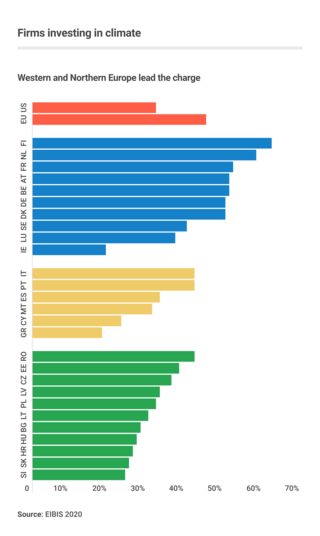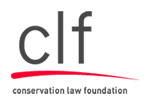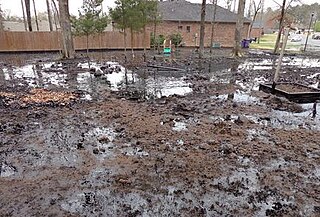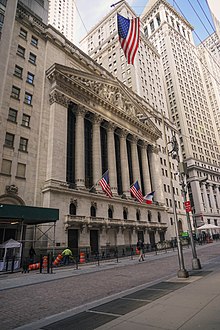The American Petroleum Institute (API) is the largest U.S. trade association for the oil and natural gas industry. It claims to represent nearly 600 corporations involved in production, refinement, distribution, and many other aspects of the petroleum industry.

Business action on climate change is a topic which since 2000 includes a range of activities relating to climate change, and to influencing political decisions on climate change-related regulation, such as the Kyoto Protocol. Major multinationals have played and to some extent continue to play a significant role in the politics of climate change, especially in the United States, through lobbying of government and funding of climate change deniers. Business also plays a key role in the mitigation of climate change, through decisions to invest in researching and implementing new energy technologies and energy efficiency measures.

Conservation Law Foundation (CLF) is an environmental advocacy organization based in New England, United States. Since 1966, CLF's mission has been to advocate for New England's environment and its communities. CLF's advocacy work takes place across five integrated program areas: Clean Energy & Climate Change, Clean Air & Water, Healthy Oceans, People & Justice, and Healthy Communities. CLF's mission statement is to "use the law, science, and the market to create solutions that preserve natural resources, build healthy communities, and sustain a vibrant economy." CLF focuses on promoting renewable energy and fight air and water pollution; building sustainable fishing communities and protect marine habitat; promoting public transit and defend public health; achieving environmental justice; and sustaining a vibrant, equitable economy.
The National Black Chamber of Commerce (NBCC) was incorporated as The National Black Chamber of Commerce, Inc., in 1993. It is a nonprofit, nonpartisan, nonsectarian organization dedicated to the economic empowerment of African American communities. Additionally, the organization indicates that it represents the views of its members regarding economic and political policy issues; domestically and internationally. It is organized as a 501(c) corporation and has at least 190 chapters within the United States. The NBCC also has international chapters in the Bahamas, Brazil, Colombia, Ghana and Jamaica. As with all Chambers of Commerce, affiliate branches are committed to carrying out the goals of the main Chamber within their areas.
Human rights violations in Aceh, Indonesia occurred in the late 1990s and early 2000s when ExxonMobil hired Indonesian military units to guard their Arun gas field, and these military units raided and razed local villages. Government inquiries have extensively documented these abuses. Victims allege that ExxonMobil knew about the atrocities, which include assault, torture, and murder, and should be liable for them. The company denies these accusations; its primary defense is that the human rights violations which were occurring were not a result of specific intention of the organization and therefore it cannot be held liable.

Kivalina v. ExxonMobil Corp., No. 4:08-cv-01138, was a lawsuit filed on February 26, 2008, in a United States district court. The suit, based on the common law theory of nuisance, claims monetary damages from the energy industry for the destruction of Kivalina, Alaska by flooding caused by climate change. The damage estimates made by the U.S. Army Corps of Engineers and the Government Accountability Office are placed between $95 million and $400 million. This lawsuit is an example of greenhouse gas emission liability.

ExxonMobil Corporation is an American multinational oil and gas corporation headquartered in Spring, Texas, a suburb of Houston. Founded as the largest direct successor of John D. Rockefeller's Standard Oil, the modern company was formed in 1999 following the merger of Exxon and Mobil. It is vertically integrated across the entire oil and gas industry, as well as within its chemicals division, which produces plastic, synthetic rubber, and other chemical products. As the largest U.S.-based oil and gas company, ExxonMobil is the seventh-largest by revenue in the U.S. and 13th-largest in the world. It is the largest investor-owned oil company in the world. Approximately 55.56% of the company's shares are held by institutions, the largest of which as of 2019 were The Vanguard Group (8.15%), BlackRock (6.61%), and State Street Corporation (4.83%).
The MTBE controversy concerns methyl tert-butyl ether (MTBE), a gasoline additive that replaced tetraethyllead. MTBE is an oxygenate and raises gasoline's octane number. Its use declined in the United States in response to environmental and health concerns. It has polluted groundwater due to MTBE-containing gasoline being spilled or leaked at gas stations. MTBE spreads more easily underground than other gasoline components due to its higher solubility in water. Cost estimates for removing MTBE from groundwater and contaminated soil range from $1 billion to $30 billion, including removing the compound from aquifers and municipal water supplies, and replacing leaky underground oil tanks. Who will pay for remediation is controversial. In one case, the cost to oil companies to clean up the MTBE in wells belonging to the city of Santa Monica, California is estimated to exceed $200 million.

The 2013 Mayflower oil spill occurred on March 29, 2013, when the Pegasus Pipeline, owned by ExxonMobil and carrying Canadian Wabasca heavy crude from the Athabasca oil sands, ruptured in Mayflower, Arkansas, about 25 miles (40 km) northwest of Little Rock releasing about 3,190 barrels of oil. Approximately 3,190 barrels of oil and water mix was recovered. Twenty-two homes were evacuated. The United States Environmental Protection Agency (EPA) classified the leak as a major spill.

David Hasemyer is an American journalist and author. With Lisa Song and Elizabeth McGowan, he won the 2013 Pulitzer Prize for National Reporting, and a 2016 Robert F. Kennedy Journalism Award. He graduated, in 1979, from San Diego State University, with a Bachelor's in Journalism. Hasemyer was raised in Moab, Utah.

As the world's largest majority investor-owned oil and gas corporation, ExxonMobil has received significant amounts of controversy and criticism, mostly due to its activities which increase the speed of climate change and its denial of global warming.

From the 1980s to mid 2000s, ExxonMobil was a leader in climate change denial, opposing regulations to curtail global warming. For example, ExxonMobil was a significant influence in preventing ratification of the Kyoto Protocol by the United States. ExxonMobil funded organizations critical of the Kyoto Protocol and seeking to undermine public opinion about the scientific consensus that global warming is caused by the burning of fossil fuels. Of the major oil corporations, ExxonMobil has been the most active in the debate surrounding climate change. According to a 2007 analysis by the Union of Concerned Scientists, the company used many of the same strategies, tactics, organizations, and personnel the tobacco industry used in its denials of the link between lung cancer and smoking.

Climate change in Connecticut encompasses the effects of climate change, attributed to man-made increases in atmospheric carbon dioxide, in the U.S. state of Connecticut.

Climate change litigation, also known as climate litigation, is an emerging body of environmental law using legal practice to set case law precedent to further climate change mitigation efforts from public institutions, such as governments and companies. In the face of slow climate change politics delaying climate change mitigation, activists and lawyers have increased efforts to use national and international judiciary systems to advance the effort. Climate litigation typically engages in one of five types of legal claims: Constitutional law, administrative law, private law (challenging corporations or other organizations for negligence, nuisance, etc., fraud or consumer protection, or human rights. Litigants pursuing such cases have had mixed results.

People of the State of New York v. Exxon Mobil Corp. was a lawsuit filed on October 24, 2018, in the New York Supreme Court. The suit alleges fraud by Exxon Mobil Corporation to mislead the company's investors about management of risks posed by climate change. On November 15, 2018, the court signed a preliminary conference order scheduling the trial to begin in 2019.
Lisa Song is an American journalist and author. She won the 2013 Pulitzer Prize for National Reporting, with David Hasemyer and Elizabeth McGowan, for their report on the Kalamazoo River oil spill. She works for ProPublica, reporting on the environment, energy and climate change.
Connecticut v. ExxonMobil Corp is a climate change litigation case brought on ExxonMobil for seeking profit despite knowing the damages it would produce on the environment.
Engine No. 1 is an American activist and impact-focused investment firm. It attracted attention with its campaign to replace four members of ExxonMobil's board of directors despite owning only 0.02% of the company's shares. The firm describes its investment approach as "active ownership", as it prefers to work with management instead of launching activist campaigns.
ExxonMobil, an American multinational oil and gas corporation presently based out of Texas, has had one of the longest histories of any company in its industry. A direct descendant of John D. Rockefeller's Standard Oil, the company traces its roots as far back as 1866 to the founding of the Vacuum Oil Company, which would become part of ExxonMobil through its own merger with Mobil during the 1930s. The present name of the company comes from a 1999 merger of Standard Oil's New Jersey and New York successors, which adopted the names Exxon and Mobil respectively throughout the middle of the 20th century. Because of Standard Oil of New Jersey's ownership over all Standard Oil assets at the time of the 1911 breakup, ExxonMobil is seen by some as the definitive continuation of Standard Oil today.
Melinda Janki is a Guyanese lawyer. She was instrumental in writing into Guyana's 1995 constitution the Environmental Protection Act giving its citizens among the strongest protections of any nation, including "the right to an environment that is not harmful to his or her health or well-being."

















